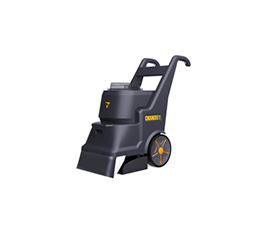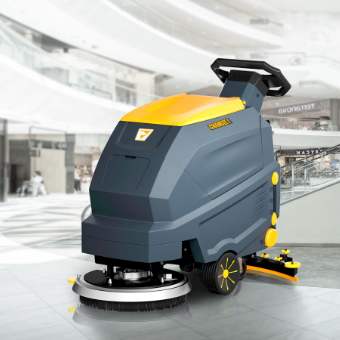About the Author:
Written by Chancee .Your Trusted Cleaning Equipment Manufacturer
Chancee Technology is a leading OEM & ODM factory responsible for manufacturing cleaning equipment for renowned brands such as Yangzi and Royalstar. With a keen focus on industrial and commercial cleaning solutions.
With a robust presence in China, Chancee operates from 4 sprawling production bases, spanning over 300,000 square meters. The company offers an extensive range of products, including floor scrubbers, sweepers, vacuum cleaners, high-pressure cleaners, cleaning tools, and detergents, totaling to more than 1,000 quality items across various categories.
Whether you are in need of cutting-edge cleaning solutions for industrial or commercial applications, Chancee Technology stands as your trusted partner in delivering superior quality, innovation, and reliability in the realm of cleaning equipment manufacturing.

In the realm of modern cleaning equipment, battery-powered floor cleaners have revolutionized the efficiency and convenience of maintaining clean spaces. Whether for commercial establishments, healthcare facilities, or even homes, these electric floor cleaners offer versatility and power. However, selecting the right battery is crucial to ensure uninterrupted operation and optimal performance. Here’s a comprehensive guide on how to choose the best battery for your floor cleaning machine.
Understanding Battery Types
Lithium-Ion Batteries: Known for their high energy density and longer lifespan, lithium-ion batteries are the preferred choice for most electric floor cleaners. They offer consistent power output throughout the cleaning cycle and are generally lighter than other battery types, making the machines more maneuverable.
Lead-Acid Batteries: These batteries are more traditional and are still used in some floor cleaning machinery, especially larger industrial models. They are known for their robustness and lower initial cost but tend to be heavier and require more maintenance compared to lithium-ion batteries.
AGM (Absorbent Glass Mat) Batteries: A type of lead-acid battery, AGM batteries are sealed and maintenance-free, offering better resistance to vibration and spillage. They are often chosen for their reliability in demanding environments.
Factors to Consider
Battery Life: The runtime of the battery is critical, especially for commercial settings where continuous cleaning is essential. Lithium-ion batteries typically offer longer runtimes and quicker recharge times compared to lead-acid options.
Charge Time: How quickly the battery can be recharged between uses impacts operational efficiency. Fast-charging lithium-ion batteries can significantly reduce downtime compared to slower-charging lead-acid batteries.
Weight and Size: For maneuverability and ease of handling, consider the weight and size of the battery. Lithium-ion batteries are generally lighter and more compact than lead-acid batteries, contributing to easier operation and storage.
Durability: The battery should withstand frequent charging and discharging cycles without significant degradation in performance. Lithium-ion batteries typically have a longer cycle life compared to lead-acid batteries.
Compatibility: Ensure that the battery is compatible with your specific floor cleaning machine model. Different machines may have varying power requirements and battery configurations.
Choosing the Best Battery
When selecting a battery for your floor cleaning machine, prioritize reliability and efficiency:
Evaluate Operational Needs: Consider the size of the area to be cleaned, the frequency of use, and whether the machine will be used continuously throughout the day.
Compare Battery Specifications: Look at the voltage, capacity (measured in ampere-hours, Ah), and cycle life of each battery option to determine which best meets your operational requirements.
Read User Reviews: Feedback from other users can provide insights into real-world performance, reliability, and any potential issues with specific battery models.
Consider Total Cost of Ownership: While lithium-ion batteries may have a higher initial cost, they often provide lower long-term costs due to reduced maintenance and longer lifespan compared to lead-acid batteries.
Conclusion
Investing in the best battery for your floor cleaning machine is essential to maximize efficiency and maintain operational continuity. By understanding the different battery types, considering key factors like battery life and charge time, and evaluating specific operational needs, you can confidently choose a battery that enhances the performance and longevity of your electric floor cleaner. Whether for commercial floor cleaning equipment or residential electric floor cleaners, selecting the right battery ensures reliable and effective cleaning results every time.














